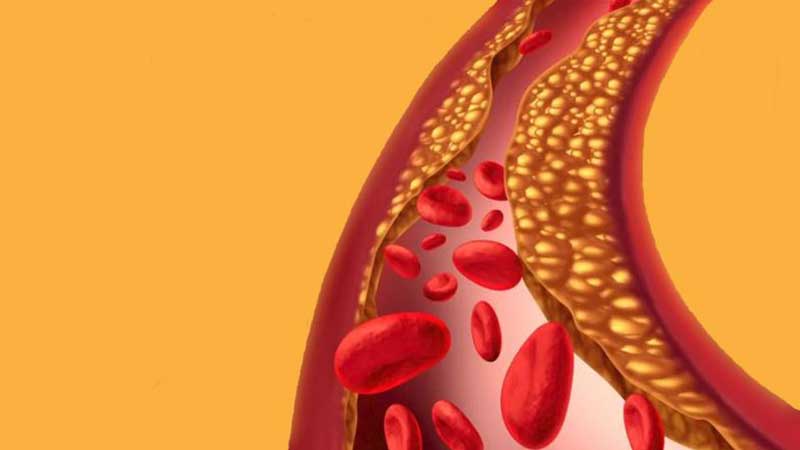

10 Most Frequently Asked Questions About Cholesterol
Ten Cholesterol FAQs
The American Heart Association reports that nearly one in three American adults has high cholesterol. September is National Cholesterol Education Month, so we identified 10 most frequently asked questions about cholesterol:
1. What is cholesterol?
Cholesterol is a waxy substance found in the fats in your blood. Your liver produces about 75 percent of your body’s cholesterol, and the rest is ingested as dietary cholesterol from the foods you eat. Cholesterol helps with the formation of cell membranes and the production of several hormones and vitamin D.
2. What are HDL and LDL? Why are they called “good” and “bad” cholesterol?
According to the Centers for Disease Control and Prevention (CDC), “Cholesterol travels through the blood on proteins called ‘lipoproteins.’ Two types of lipoproteins carry cholesterol throughout the body: high-density lipoproteins (HDL) and low-density lipoproteins (LDL).” HDL is known as “good” cholesterol because these lipoproteins transfer cholesterol in your blood back to the liver to be eliminated from your body. LDL is considered “bad” cholesterol because these lipoproteins carry cholesterol from the liver out into your body, and too much LDL in your blood can join with fats and other substances in your blood and begin to clog your arteries. Every person’s HDL and LDL levels vary, so it is important to consult with your doctor about your own individual cholesterol levels.
Additional Reading: LDL and HDL Cholesterol: “Bad” and “Good” Cholesterol
3. What does high cholesterol do to the body?
Excess cholesterol in your body can build up as unwanted plaque along the inner walls of your arteries, narrowing the arteries and restricting blood flow. Plaque accumulating in the coronary arteries may not allow enough blood to reach your heart, which can cause heart disease. If arterial plaque breaks loose or ruptures, a blood clot may form and travel into your bloodstream. The blood clot can hamper blood flow to the heart and cause a heart attack. A blood clot can also block an artery to the brain and cause a stroke. In the United States, heart disease is the No. 1 cause of death. People with high cholesterol nearly double their risk of getting heart disease. The CDC finds that less than half of U.S. adults with high LDL cholesterol levels seek treatment.
4. What is a healthy cholesterol level for people aged 65 and above?
Seniors over age 65 are at higher risk for elevated cholesterol and cardiovascular disease. Traditional cholesterol treatment guidelines have focused on target goals for cholesterol levels. The typical healthy cholesterol levels for most adults are:
- Total blood cholesterol level less than 200mg/dL.
- LDL cholesterol level less than 100mg/dL.
- HDL cholesterol level greater than 40mg/dL for men, 50mg/dL for women.
Current prevention guidelines also recommend looking at an overall risk assessment and risk factors such as genetics, diet and lifestyle.
5. How do you know if you have high cholesterol?
High cholesterol typically produces no signs or symptoms itself, so many people have no idea their cholesterol is too high. Your doctor can order a simple blood test, known as a lipid panel or lipid profile, to measure four main types of fats (lipids) in your blood. The test calculates total cholesterol, HDL, LDL and triglycerides, which are another type of fat that circulates in your blood and can contribute to the thickening of artery walls.
Additional Reading: Symptoms of High Cholesterol
6. How often should cholesterol be checked?
Starting at age 20, you should have your cholesterol levels checked every four to six years. Your doctor may suggest you have your cholesterol monitored more frequently if you have a family history of high cholesterol or you have high blood pressure, are overweight or smoke.
7. What health conditions can cause high cholesterol?
Many factors contribute to high cholesterol, including a family history of elevated cholesterol, physical inactivity and a diet rich in saturated and trans fats. Being overweight raises the level of bad LDL cholesterol and lowers the body’s good HDL cholesterol. Aging also contributes to higher cholesterol for both men and women. Postmenopausal women may find that as their estrogen decreases, their good HDL cholesterol levels also decrease. A number of certain health conditions are also known to increase cholesterol levels, including diabetes, thyroid disorders, kidney disease, hypothyroidism (underactive thyroid), alcoholism, Cushing’s syndrome (hypercortisolism) and liver diseases such as cirrhosis and nonalcoholic steatohepatitis.
Additional Reading: Health Problems That Raise Cholesterol Levels
8. What are foods to avoid if you have high cholesterol?
High cholesterol can be lowered, and adjusting to a heart-healthy diet can help. To improve your diet to lower cholesterol, reduce the consumption of foods high in saturated and trans fats such as red meat, butter and full-fat dairy products. The American Heart Association advises limiting saturated fats to 5 to 6 percent of your daily calories. Eating fewer fried, processed and sugary foods can also prove beneficial.
9. How do you lower cholesterol naturally?
You can naturally lower cholesterol and protect your cardiovascular health by making changes in your lifestyle. Besides losing weight, watching your fat intake and switching to a high-fiber diet consisting of fruits, vegetables, fish, poultry and whole grains, you can drop your cholesterol numbers by lowering blood pressure and quitting smoking. Increasing aerobic exercise by swimming, briskly walking, bicycling, dancing and participating in other moderate to vigorous physical activities three to four times a week can also curb cholesterol and high blood pressure.
A number of prescription cholesterol-lowering medications called statins are on the market, including Lipitor®, Zocor® and Crestor®, but your doctor may also recommend more natural medications and supplements, including fish oils (omega-3 fatty acids), niacin and fibric acids.
10. “I exercise and I have a good diet, so why do I still have high cholesterol?”
For up to 20 percent of people in the United States with high cholesterol, the underlying problem is genetic. Inherited high cholesterol, medically known as familial hypercholesterolemia or FH, means heightened cholesterol runs in the family. Inherited high cholesterol increases the risk of an early-age heart attack. Knowing one’s full family health history and getting regular medical checkups are two of the best ways to stay ahead of concerns with cholesterol for any adult. The My Cholesterol Guide by the American Heart Association is another valuable resource in keeping cholesterol under control.
Additional Reading: 10 Things You Need to Know About Inherited High Cholesterol




